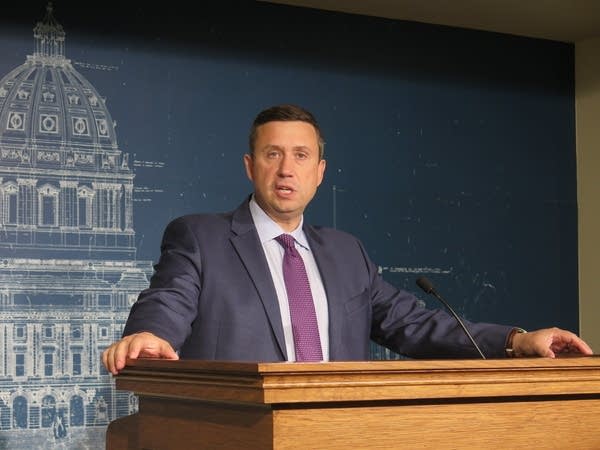Presidential primary voter data collection sparks partisan feud

Minnesota DFL Party Chair Ken Martin called for protections to voter data collected in the presidential primary during a state Capitol news conference.
Tim Pugmire | MPR News
Go Deeper.
Create an account or log in to save stories.
Like this?
Thanks for liking this story! We have added it to a list of your favorite stories.


